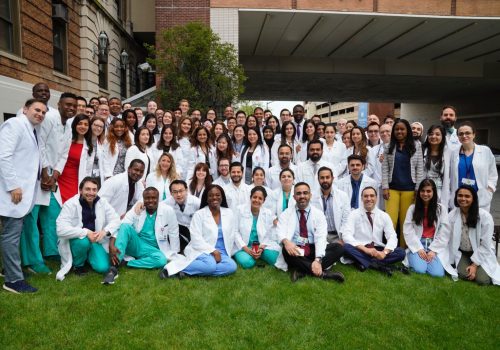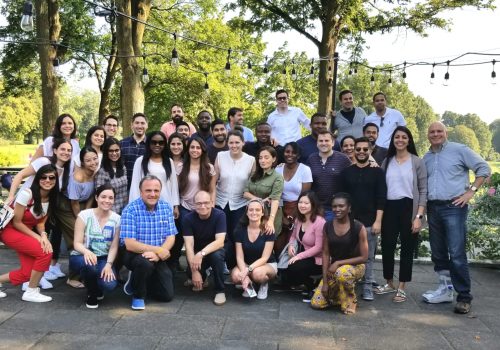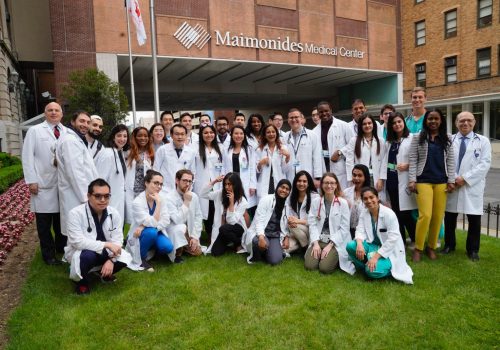
Internal Medicine Residency at Maimonides Medical Center

Internal Medicine Residency at Maimonides Medical Center
Care Visits
Discharges
Members
Subspecialty Fellowships
Our residents have gone on
to the nation’s leading institutions
The residents of the Maimonides Medical Center Residency Program are what make our program special. Our trainees come from all over the world with varied experience and knowledge that they bring to our program.
Many of our graduates go on to pursue fellowships, hospital medicine, or primary care all across the country after graduation. Learn more about where our graduates have gone over the last five years.
Baylor Medical Center
Brown University
Columbia Univ. Mailman Sch. of Public Health
Eastern Virginia Medical School
Icahn Sch. Med. at Mount Sinai
Jackson Memorial
Lenox Hill Hospital – Northwell Health
Massachusetts General (Interventional)
Montefiore Medical Center
Mt. Sinai Beth Israel
Mt. Sinai School of Medicine
Nassau University Hospital
New York Hospital/Cornell Medical Center
Northwell Health North Shore-LIJ
NYU Winthrop
Ohio State University
Olive View-UCLA Medical Center
Oregon Health Sciences University
Penn. State Milton Hershey Medical Center
Roger Williams Medical Center
Rutgers NJ Medical School
Stony Brook Medical Center
SUNY Buffalo
SUNY Downstate Medical Center
Tulane University
UC Irvine
Univ. of Texas Medical Branch – Galveston
University at Buffalo
University of Arizona
University of Cincinnati
University of Hawaii
University of Indiana
University of Kentucky
University of Maryland
University of Massachusetts
University of Massachusetts, Baystate
University of Miami/Jackson Memorial Hospital
University of Missouri, Columbia
University of New Mexico
University of Pittsburgh
University of Tennessee
University of Tennessee, Memphis
University of Toronto
Westchester Medical Center
Baylor Medical Center
Brown University
Columbia Univ. Mailman Sch. of Public Health
Eastern Virginia Medical School
Icahn Sch. Med. at Mount Sinai
Jackson Memorial
Lenox Hill Hospital – Northwell Health
Massachusetts General (Interventional)
Montefiore Medical Center
Mt. Sinai Beth Israel
Mt. Sinai School of Medicine
Nassau University Hospital
New York Hospital/Cornell Medical Center
Northwell Health North Shore-LIJ
NYU Winthrop
Ohio State University
Olive View-UCLA Medical Center
Oregon Health Sciences University
Penn. State Milton Hershey Medical Center
Roger Williams Medical Center
Rutgers NJ Medical School
Stony Brook Medical Center
SUNY Buffalo
SUNY Downstate Medical Center
Tulane University
UC Irvine
Univ. of Texas Medical Branch – Galveston
University at Buffalo
University of Arizona
University of Cincinnati
University of Hawaii
University of Indiana
University of Kentucky
University of Maryland
University of Massachusetts
University of Massachusetts, Baystate
University of Miami/Jackson Memorial Hospital
University of Missouri, Columbia
University of New Mexico
University of Pittsburgh
University of Tennessee
University of Tennessee, Memphis
University of Toronto
Westchester Medical Center
Why Choose Maimonides
Reputation
Achievements
- #1 in U.S. for heart attack survival
- An innovative program in Bloodless Medicine & Surgery
- Brooklyn’s only comprehensive Children’s Hospital
- Brooklyn’s first interdisciplinary Pelvic Floor Center
- Comprehensive Breast Center
- Nationally recognized Cancer Center
- Nationally recognized Neonatal Intensive Care Unit (NICU)
- Prostate Center with the most advanced HIFU technology
- State-of-the-art Orthopedic and Spine Centers
- Top 1% in the US for stroke patient outcomes
- All rotations at one institution
- Incredibly diverse patient base
- Enthusiastic and engaged faculty
- Accessibility to all medicine subspecialties
- Best outcomes in New York State for MI and PCI
- Residents graduate with confidence in their skills
Program Leadership
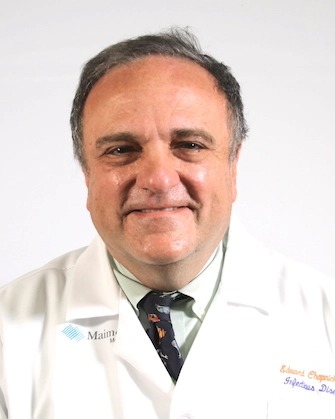
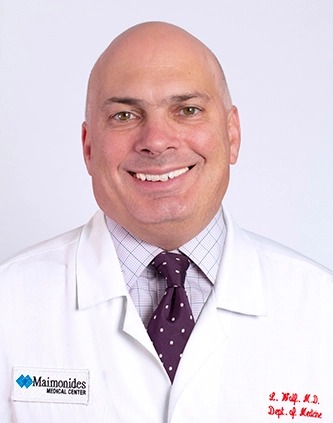
Melvyn Hecht, MD
Unique Curriculum
Quality Improvement
Ambulatory Didactics and Humanism Project
Resident Preparation
A weekly Intern Report allows PGY1s to learn the basic principles of proper History and Physical Exam as well as to hone their presentation and differential diagnosis skills.
Bi-weekly Morning Report focuses on overnight admission case presentations. Program leadership and firm attending physicians help structure and guide case presentations as well as differential building.
Our training program is designed as a 4+1 block, inpatient-to-outpatient schedule. On the inpatient side, our wards are made up of four general medicine teams. Each team is supervised by 3 attending physicians, is comprised of five interns and three senior residents who care for a maximum of 50 patients. This ensures that our trainees receive the best educational experience while guaranteeing the highest level of patient safety and care. We have an educational night medicine rotation that allows overnight residents and interns to admit patients to each of the medicine teams and provide continuity of care with the day teams the next morning.
In the outpatient clinics, residents spend 3 years rotating through a continuity clinic. We have a system where residents are follow a panel of patients while being precepted by our outpatient faculty who strive to provide longitudinal feedback. For more about the typical schedule, please see the Categorical Residency Program, below. For detailed information about the curriculum, see Our Curriculum, above.
Categorical Residency Program
A typical Categorical PGY1 schedule is as follows:
PGY1 Weeks
Inpatient Floors | 20-22
Outpatient | 10
Night Float| 7
MICU | 2-4
Elective | 5-7
Vacation | 4
PGY2
The PGY2 year represents a major transition for the housestaff. During ward blocks, the PGY2 serves as team leader, taking more responsibility for patient care. They rotate through the Medical Intensive Care Unit (MICU), the Coronary Care Unit (CCU), as well as in the Emergency Department (ED).
A typical PGY2 schedule is as follows:
PGY2 Weeks
Inpatient Floors | 12-14
Outpatient | 10
Night Float | 5-6
MICU/CCU | 6-8
Elective | 7-9
Emergency Department | 4
Vacation | 4
PGY3
The PGY3 year is intended to further develop leadership skills and extend the resident’s knowledge base, complete research projects, and focus on future career transitions.
A typical PGY3 schedule is as follows:
PGY3 Weeks
Ward Blocks | 8-9
Outpatient | 10
Cardiac telemetry Floor | 1-2
Night Float | 5-6
Elective | 12-13
MICU/CCU | 6-8
Medical Admitting | 3-4
Vacation | 4
Preliminary Residency Program
A typical Preliminary PGY1 schedule is as follows:
PGY1 Weeks
Inpatient Floors | 20-22
Night Float | 7
Emergency Department | 4 (anesthesia only)
MICU | 2-4 (non-anesthesia), 8 weeks (anesthesia)
Elective | 12-16
Vacation | 4
Interested in learning more?
Location
Resident Stories
Residents Salary and Benefits
How To Apply
All applications are accepted only through ERAS and the Department of Medicine offers all of its Internal Medicine residency positions through the NRMP.
- Categorical Three-Year Program
- Preliminary One-Year Program
The review of your application and the scheduling of interviews requires, at the minimum, your ERAS application, transcript, and Dean’s letter. Additionally, we require a letter of recommendation from your Department of Medicine and letters from two faculty members. Please include a personal statement and curriculum vitae, in addition to the above, all through ERAS.
Application Checklist
- All applications through ERAS
- Transcripts
- Dean’s letter/MSPE
- Letters of Recommendation (3)
- Department of Medicine Letter of Recommendation
- Personal statement
- Curriculum Vitae
- USMLE/COMLEX
For international graduates we do not demand US clinical experience, but it is strongly favored. We prefer candidates who have graduated within the last three years; however, we will consider more than three years from date of graduation with commensurate clinical experience in the intervening time.
For detailed information on the application process, please learn more at: How to Apply – Residents and Fellows | Maimonides Medical Center
For additional FAQs about Maimonides Medical Educations programs, please learn more at: Frequently Asked Questions | Maimonides Medical Center
Interview Day
Due to the COVID-19 pandemic, this interview season will be entirely virtual. Your session will typically include a greeting from the Chair of Medicine, interviews with faculty members, and current chief and medicine residents. Each prospective applicant with have time to virtually meet the Program Director. There will also be virtual social events with our current residents (both preliminary and categorical) so candidates can learn more about our program.
© 2020 Maimonides Medical Center
